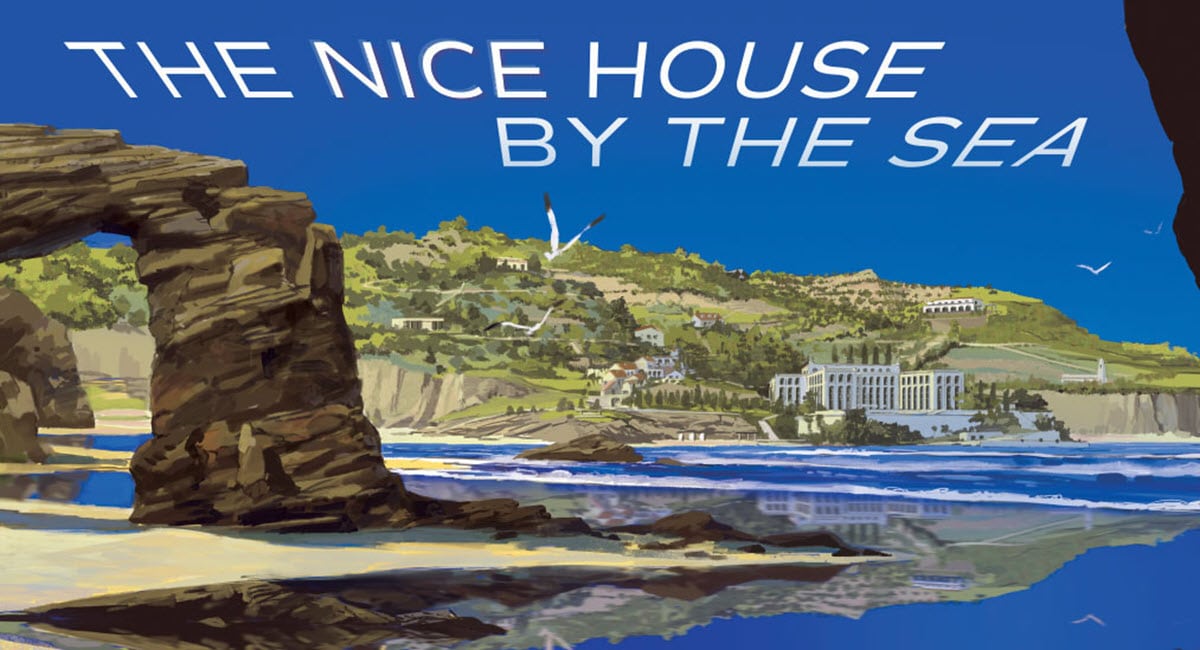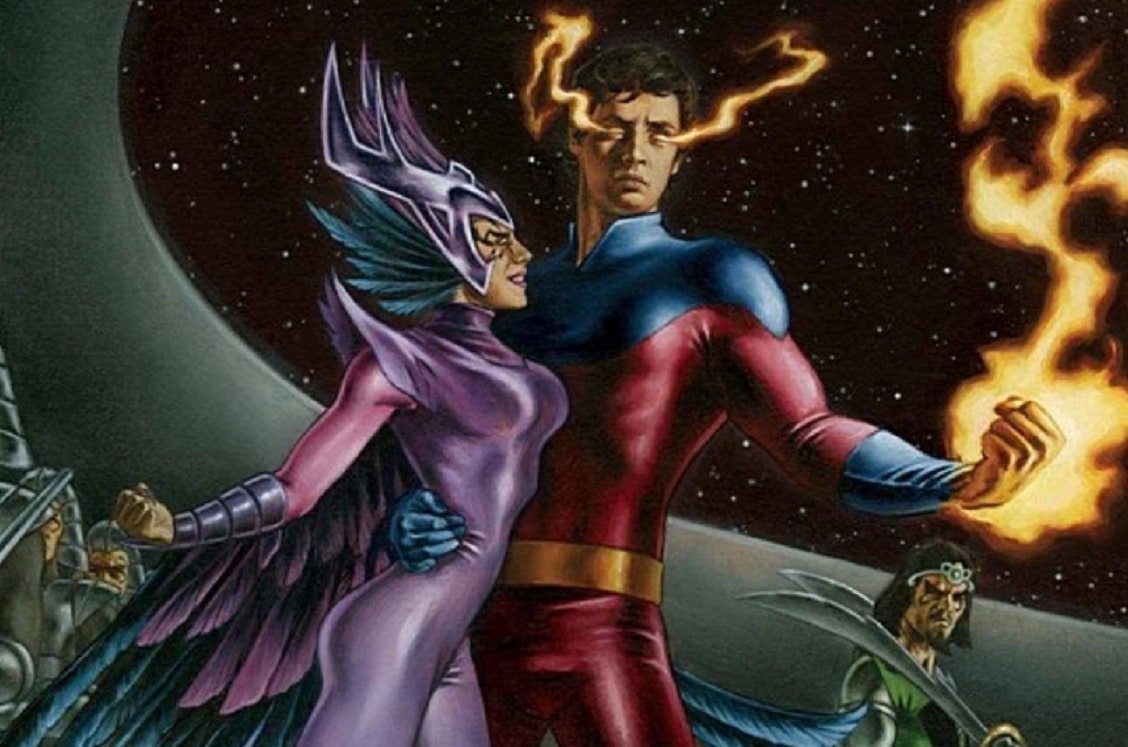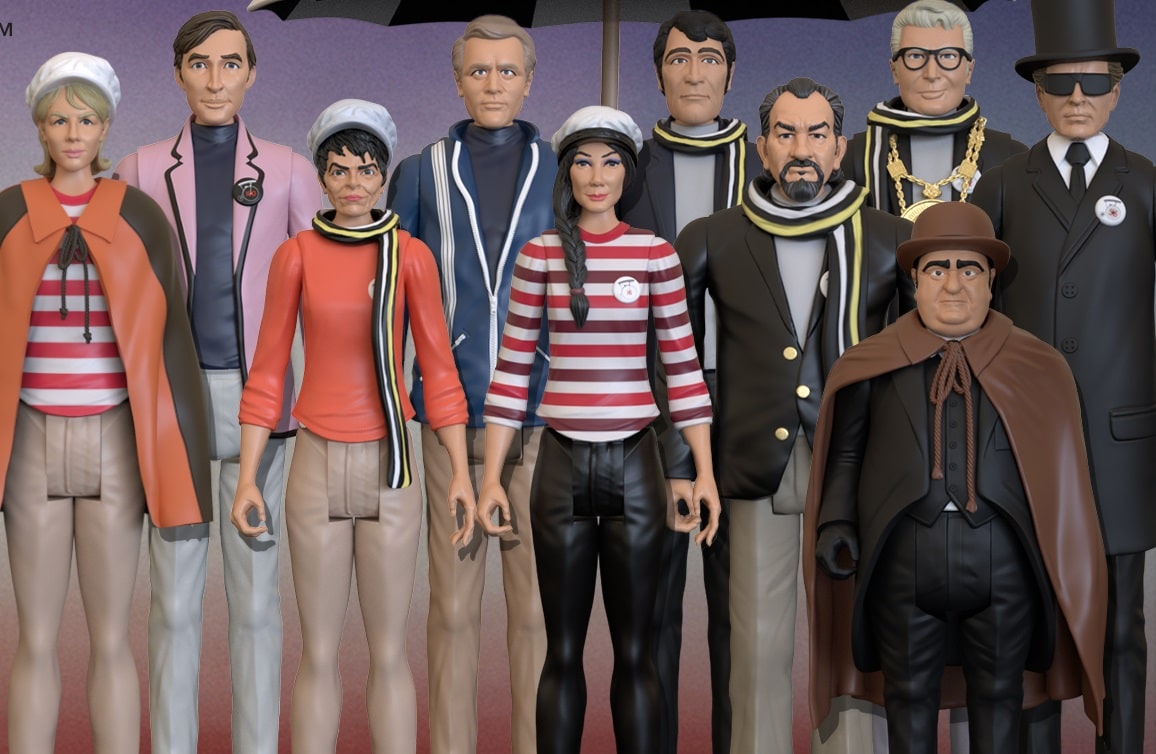§ Vince Moore at Comics Waiting Room asked: Why are there no great black supervillains?
Where are all the “cool” black supervillains? Where is the black Lex Luthor? Or the black Dr. Doom? Where are those black bad guys that comics readers can love to hate? Those black bad guys made from the same stuff of myth and legend as the Joker and the Green Goblin. The brilliant yet disturbed mind. That one obsession which drives the need to conquer or create mayhem. The hero’s opposite number. The capacity to make the hero suffer, to even defeat the hero if not for that one fatal flaw that thwarts all the mad schemes. Where are those black bad guys?
§ Steven Grant responds with a sharp description of “otherness”:
The difference between white characters and other characters in American comics is that non-white characters of any story magnitude are almost always defined by their race. A white supervillain, well, he’s just an evil bastard, or wants money, or whatever. A black supervillain? His motivation has to at some level be racial; he suffered the indignity of racism in the ghetto as a child, or went to an otherwise all-white rich kids’ school where he was never allowed to forget he was different, or whatever other rubbish backstory someone comes up with. Otherwise why make him black, right? Same with Asian, Native American, etc. If they’re motivationally indistinguishable from white male supervillains, why risk offending an entire race? The difference being that white supervillains enhance the middle class white American viewpoint of a Caucasian status quo. Even female characters are often seen to require “special” motivation that almost no one would think to look for in a white male supervillain. Or superhero. (In the ’70s-early ’80s, rape or some variant of sexual abuse was a way too common motivation for both heroines and villainesses, and I’m glad that one pretty much subsided.)
§ Sometimes Splash Page gets a little TOO immersed in its own universe for its own good, such as this look at Mickey Rourke as Whiplash, that ventures the hypothesis that comic book movies that mash-up two characters into one are a dangerous sign a movie will suck.
§ First Second’s Mark Siegel reviews David Mazzucchelli’s ASTERIOS POLYP.
§ A new author reenters the comics shop after some time away and finds it a strange landscape, especially where comics for her kids are concerned. Go help her out with some suggestions.
§ Valerie D’Orazio and her respondents discuss where comics news ends and gossip ends and what is appropriate.
§ With TRINITY wrapped up, Tom Bondurant interviews author Kurt Busiek.







Black Manta’s a ‘black’ supervillain.
I always thought one of the greatest black supervillains was Chaos from the “Warp” stage play and Pacific Comics series. Here he was, one of the biggest and baddest, as brilliant as Lex Luthor, and causing trouble for the hero Cumulus.
But, of course, since “Warp” is in its own separate sub-universe, there’s no way Chaos could go toe-to-toe with Superman or Thor.
MF DOOM is the greatest supervillain of all time and he’s black.
Howabout Geoffrey Wilder from Runaways?
Moses Magnum was portrayed as a very cool and competent villain when Busiek wrote him during his AVENGERS run. Of course, the current Marvel editors and writers (as usual) either have forgotten about or refused to acknowledge any cool stories and character development that has happened before Quesada became EIC. So what weend up with is Moses Magnum being once again portrayed as an incompetent villain who is easily taken down by Spider-Man and Punisher in an issue of ASM several months ago.
Ironically, the recent animated versions of Baxter (from the TEENAGE MUTANT NINJA TURTLES 2003 cartoon) and Tombstone (from THE SPECTACULAR SPIDER-MAN cartoon) are two of the best supervillains (not just two of the best BLACK supervillains) currently around.
I know that Trinity from DC has finished, but I thought I saw a different Trinity title on sale recently.
In modern times, the lack of black bad guys is probably down to the same reason as the lack of major black bad guys in movies — no one, or rather no publisher, wants to be accused of racism by pairing a black villain with a white hero, and there aren’t that many major black heroes to begin with. Which is probably an unfounded fear, as I don’t remember any such complaints regarding the Daredevil movie. People complained about it, but that’s because it was a bad movie. Not because it featured a white hero tracking down a black villain.
And though it’s sad to say, it may have been latent societal racism that kept us from having a black Lex Luthor, etc. in the golden & silver ages (which, the more I think about it, would make Lex 10 times cooler than he already is if he was and always had been black). Blacks were, unfortunately, widely considered to be intellectually inferior, so the idea of a black super-genius villain probably would’ve been viewed as preposterous by many readers and/or editors & publishers of the day. Or maybe it wouldn’t have. Too late to tell for sure now.
Either way, I fully agree with Vince. I want a black Lex Luthor!
Cough! splutter! someone needs to get out their copies of Runaways. a thoroughly ethnically diverse array of heroes AND villains there.
“Why are there no great black supervillains?”
Probably because pitting them against black heroes would feel like a token gesture to make a ‘black’ comic specifically appealing to black readers by way of having black characters, which is both transparent and kind of insulting.
To the contrary, having a black villain fighting a white hero could be construed as racist.
And there just aren’t enough Asian heroes to work the balance…
Black Manta actually is black, and one of my favorite super villains of all time–even if I am totally, utterly alone on that.
I’m not sure about Steven Grant’s comment that rape was a motivation for female characters in the 70s and 80s. On the contrary, rape seemed to become a motivation in the 80s, and it persisted through the “GrimNGritty” 90s … and even into the double-o’s.
Based on number of appearances, “black guy in alleyway” is one of the most popular super-villains of all time.
Perhaps Apocalypse isn’t black, but he’s not white.
SRS
I always figured that, since the supervillain racks more losses than wins over his career, no comic writer wants to be seen as racist, therefore no black villains.
That is why I will always stick up for the James Bond movie “Live and Let Die.” What other people see as racist, I will always see as the rare case where a Black man was cunning and powerful enough to go toe-to-toe with 007.
Unfortunately, I’m not familiar with any of the characters in Runaways to judge the diversity of its good guys and bad guys. However, since none of the bad guys have gone beyond that book does not disprove my initial argument.
As for “Live And Let Die”, in many circles that film is known as Broccoli Productions’ attempt to cash in on the blaxploitation movement. Why else would James Bond find himself dealing with essentially inner city thugs? Like myself, many black viewers are fond of that movie particularly.
Anyone remember CENTURIUS from NICK FURY #2? He’s almost certainly the first black villain in American comics whose villainy had nothing to do with racial grudges or his country of origin.
Actually, if you’re going to include street-thugs as villains let’s not forget the ever-popular “witch doctor who dresses up like a jackal/gorilla/cantalope to menace Sheena.”